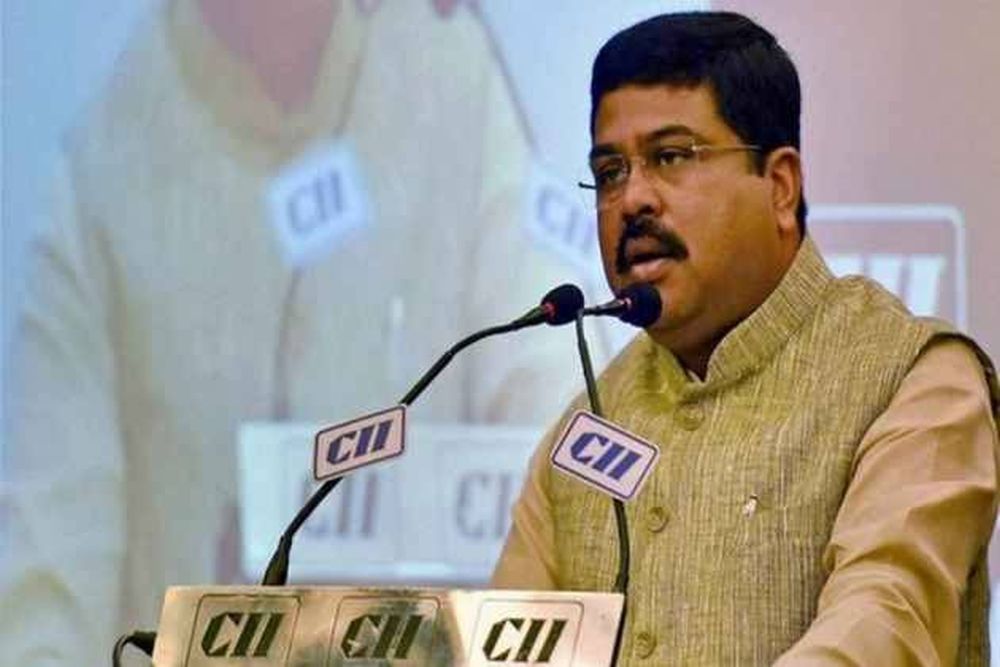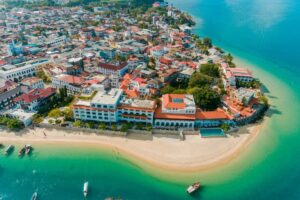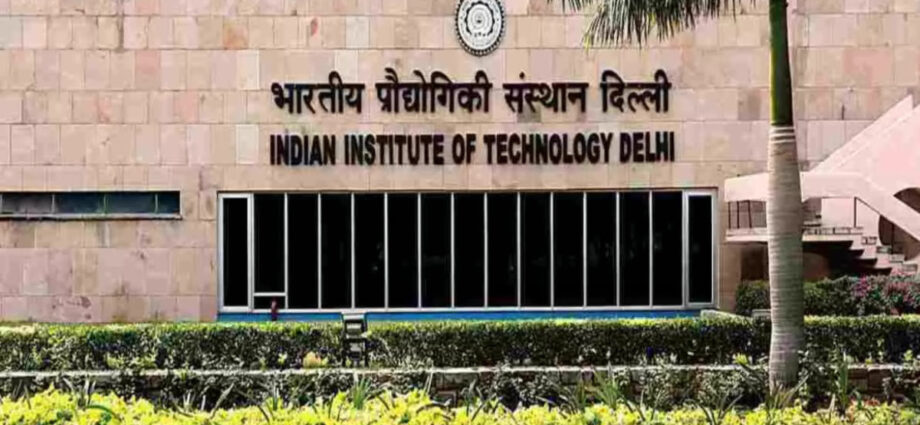An offshore campus of IIT Madras in Tanzania is among the options on the government’s table as it works on a plan to ensure that the country’s premier engineering institutes have a presence on the world map.
Pradhan met Lela Muhamed Mussa, Minister for Education and Vocational Training, Zanzibar, here on Friday. He also proposed setting up of a skill centre in Zanzibar. “India is happy to assist Tanzania with the IIT project. IIT in Tanzania can be a hub for technology education in Africa. I put forward the support required for implementation of the project and also shared India’s willingness to establish a 21st century skill centre in Zanzibar.
“Leela Muhamad Musa assured of all the requisite support to make our education and skills cooperation more vibrant & also for the prosperity of Tanzania and Zanzibar. NEP is creating new avenues for education in India. I invited Tanzanian & African students to Study in India,” Pradhan said in a series of tweets.
Several IITs have been receiving requests from the Middle-East and South Asian countries to set up their campuses. The Centre had earlier this year set up a committee headed by IIT Council standing committee chairperson Dr K Radhakrishnan.
The panel had recommended that there could be more than one model of establishing the institute depending on the specific location such as campuses by individual IITs, a group of IITs and HEIs, individual or group of IITs in collaboration with a reputed host university.
The panel has suggested creating a generic system like IIT, NIT or IISER, under which a series of institutes can be established as the current IIT Act does not provision for setting up an IIT outside the country.

Naming IITs as “India International Institute of Technology”, sending faculty members from the prestigious technology institutes here on deputation abroad, royalty from the institute established abroad for using IIT brand name and safeguards for saving the IIT brand in the longer run and in cases where the institute established abroad does not do well due to any reason, are among the other recommendations made by the panel.
The world-famous Indian Institute of Technology (IIT) will open an offshore campus in Tanzania, according to plans released by the Indian government.
Dharmendra Pradhan, the Indian Education Minister, made the statement after meeting his Zanzibar counterpart, Lela Mohammad Musa, who visited IIT Chennai in November 2022.
In a region where access to high-quality higher education is limited, the establishment of IIT promises to be a game-changer. IIT will fill that void by introducing well-proven standards that have made IIT a brand of such international renown
Launched in the 1950s, the IITs were India’s solutions for the challenges it faced early in its post-independence years. The goal was to groom world-class engineers to fulfil the demands of a rapidly industrialising nation. IITs were modelled after the MIT, a prestigious American institution known for its technical brilliance.
The IITs became a huge success. In national rankings, they consistently occupy the top spots. They are equally competitive globally, with the top four institutes ranking between 200 and 350 on some lists. In comparison, none of Tanzania’s universities appears in the top 1,000 of such lists.
Similarly, IIT graduates are in high demand inside and outside India. At least 25,000 IIT graduates have been employed in the US alone. IITs now boast some of the most influential names in the world of technology among its alumnae. These include the CEOs or founders of Google, Twitter, Infosys, Vodafone, IBM, Tata Consultancy Services, and Bell Laboratories.
As a result, getting into IITs is ultra-competitive. Only 2 percent of those who sit for exams get admitted. The IITs are reputed to be the hardest schools to get into in the world. Even a young Venkatraman Ramakrishnan, a Nobel Laureate, failed to get a chance.
IIT offers courses in Information Technology, Metallurgy, Mining Engineering, Chemical Engineering and so on. These can meet the needs of local talents for Tanzania and Africa as a whole.
Students can expect the academic standards to be quite high. The syllabuses are progressive. The faculty is competitive. And the learning environment generally better than comparable institutions.
Most students at IITs take B.Tech programs for four years, which includes a year of industrial attachment. Some students take five-year dual degrees, combining bachelor’s and master’s degrees. The government typically subsidises those programs by 80 percent. Ultimately, students pay only $700 for tuition and living expenses annually.
In recent years, some Tanzanian schools have significantly raised the bar for outstanding performance. It is now quite common for students to score all As in their O-level and A-level exams. As the pool of such performers increases, the big question is, where do they go afterwards?
Tanzania’s higher education institutions generally have poor teacher-to-student ratios, a lack of concentration on R&D, bad learning environments, low proportions of international students, and so forth. They are designed to simply be teaching shops that churn out as many “graduates” as possible. Excellence is not their target.
Two months ago, I talked with a high school graduate who had been denied admission to the University of Dar es Salaam’s Faculty of Law despite having a respectable Division One. He stated that one must have at least five points or better to have such a chance nowadays.
That is a very high standard indeed. But how can it be reconciled with the dismal results when those students face bar exams?
This year, only 26 of 633 candidates passed the bar exam, leading to widespread outrage. As a result, a committee was formed to probe what happened. The committee concluded that the candidates the LST receives are poor in quality.
What happened to the top performers who joined the various universities earlier?
Given the calibre of our institutions, we will be continually disappointed if we expect those students will be groomed to be globally competitive. Hopefully, this is the void that IIT Tanzania wishes to fill.
The IITs model will be quite novel in the Tanzanian higher education landscape. To begin with, as elite tertiary-level institutions, they are designed to take the best and produce even better graduates. The laws that establish these institutions define the standards that must be met. One will have to change the legislation to establish new IITs in India.
Similarly, they are autonomous institutions. That allows them to set their objectives without being influenced by politics. In Tanzania, politicians control everything, even academics. They can even decide how many students a college should accept, regardless of capacity. The IIT model would forbid that.
Finally, IITs are accorded special status. In India, they are known as “institutions of high importance.” As a result, they receive four to eight times the funding that other institutions do. That is the investment that the government makes in increasing standards. The outcome is a vastly improved learning environment and performance.
If that is India’s vision for IIT Tanzania, then this is a highly welcome development. Indeed, it is the kind of import that Tanzanians are truly desperate for.
Today, Tanzania requires at least 20 percent of its people to have tertiary-level education to power its economy. But only 5 percent have university degrees. Similarly, whereas Tanzania requires 33 percent of medium-skilled and 12 percent of high-skilled workers, the vast majority are low-skilled (84 percent).
The IIT model focuses on producing those 12 percent of elite workers. That is the portion of the workforce that attracts investment, launches innovative ventures, integrates the economy with the rest of the world, and pulls it forward by its bootstraps.
One can only hope that IIT Tanzania will be as successful as IITs have been in India. That game-changing effect will have a lasting impact on how Tanzanians do higher education, particularly technical education
Share this news
This Year’s Most Read News Stories

Zanzibar tourism investors alarmed by new mandatory insurance fee
Tourism investors in Zanzibar have voiced their concerns over the introduction of mandatory travel insurance, cautioning about its potential negative impact on the industry.Continue Reading

Tanzania can benefit from strategic investment in national pride
Travelling to a few places so far, I discovered that the Tanzanian passport can change the way one is treated at airports and international bordersContinue Reading

Zanzibar, Tanzania: Inflation hits five-year high
With Covid-19 and the war in Ukraine being blamed after inflation in Tanzania and Zanzibar rose to 4.5 this year and is climbing – the highest rate since November 2017Continue Reading











